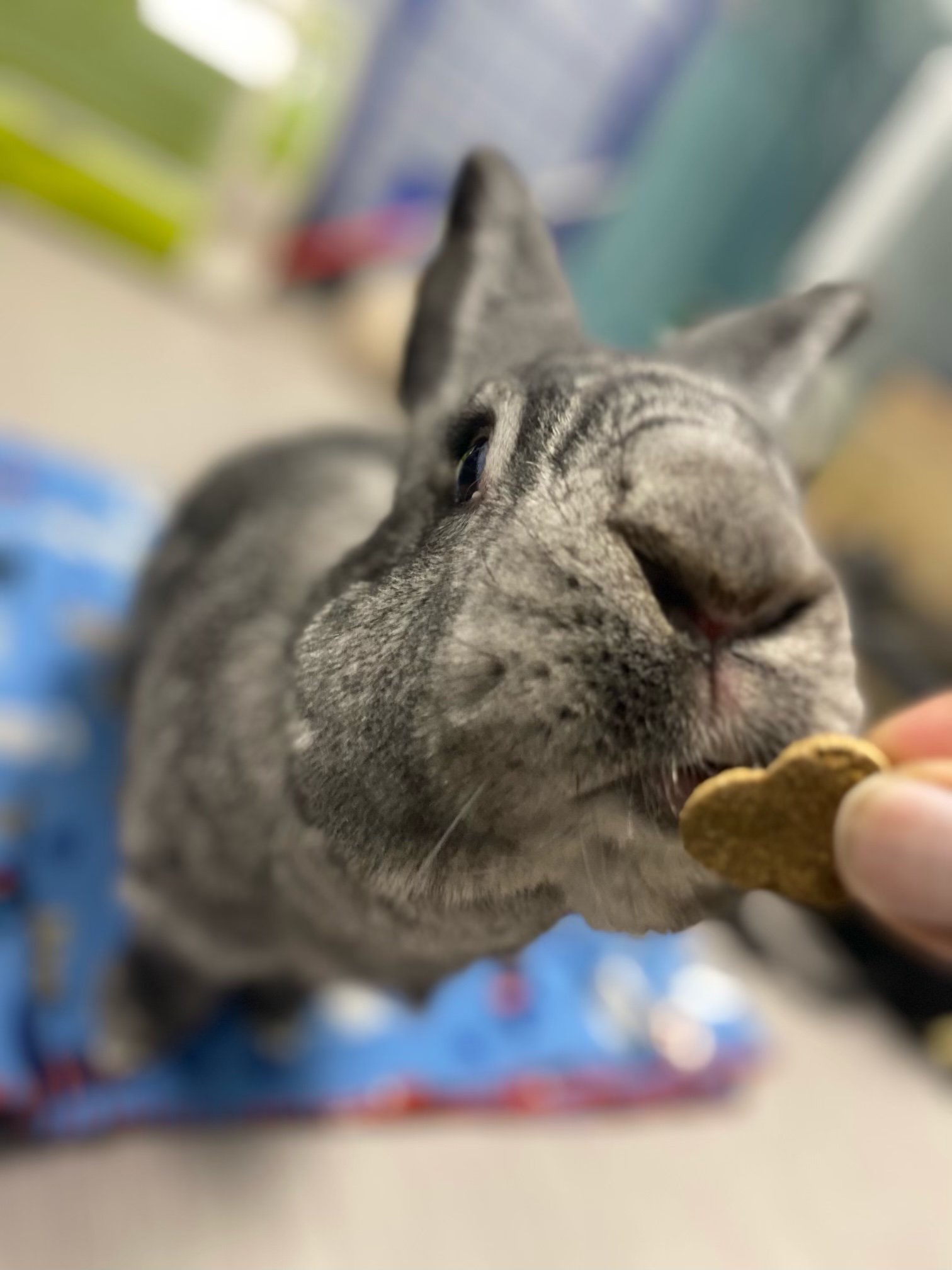
Rabbit Hemorrhagic Disease Virus
We can offer vaccines with any wellness appointment.
107E Baltimore Ave. Lansdowne PA 19050
.
OTHER THINGS TO KNOW:
- All new patients will require a wellness exam prior to the initial vaccine dose
- The vaccine is safe for bunnies ages 7-weeks+
- A booster is required 21-days after the initial dose
EMAIL US TO SHEDULE YOUR EXAM AND VACCINE TODAY:
info@eahphilly.vet



Rabbit hemorrhagic disease is a highly contagious, fatal disease in rabbits and is currently classified as a reportable, foreign animal disease in the United States.
It is important to note that RHDV2 does not impact human health.
RHDV2, unlike other rabbit hemorrhagic disease viruses, affects both domestic and wild rabbits. Infected rabbits may develop a fever, be hesitant to eat, or show respiratory or nervous signs. However, many times, the only signs of the disease are sudden death.
How RHDV2 Spreads: The RHDV2 virus is very resistant to extreme temperatures. It can be spread through direct contact or exposure to an infected rabbit’s excretions or blood. The virus can also survive and spread from carcasses, food, water, and any contaminated materials. People can spread the virus indirectly by carrying it on their clothing and shoes.
Follow these recommended biosecurity practices:
● Do not allow pet or wild rabbits to have contact with your rabbits or gain entry to the facility or home.
● Do not allow visitors in rabbitries or let them handle pet rabbits without protective clothing (including coveralls, shoe covers, hair covering, and gloves).
● Always wash hands with warm soapy water before entering your rabbit area, after removing protective clothing, and before leaving the rabbit area.
● Do not introduce new rabbits from unknown or untrusted sources.
● Do not add rabbits to your rabbitry from animal shelters or other types of rescue operations. If you bring outside rabbits into your facility or home, keep them separated from your existing rabbits for at least 30 days. Use separate equipment for newly acquired or sick rabbits to avoid spreading disease.
● Sanitize all equipment and cages moved on or off-premises before they are returned to the rabbitry. We recommend disinfecting with 10% bleach or 10% sodium hydroxide mixed with water.
● Establish a working relationship with a veterinarian to review biosecurity practices for the identification and closure of possible gaps. If you are a breeder or grower who purchases live rabbits, even if you have existing biosecurity measures in place, you should review your practices and take steps to address potential gaps.
Other Steps to Prevent Disease Spread:
● The goal is to prevent this disease from impacting domestic and wild rabbit populations. To minimize the risk, here are some actions you can take to help:
● If you live near or visit an area where this disease was confirmed, do not touch any dead wild rabbits you may see. You may contact your local veterinarian, state and federal animal health officials to learn if RHDV2 has been detected in your area.
● If you see multiple dead wild rabbits, report it to state wildlife officials.
● If you own domestic rabbits, do not release them into the wild. If your rabbits appear ill or die suddenly, contact your veterinarian.
● If you volunteer at animal shelters or wildlife rescue facilities, be aware that this disease has been found in wild rabbits. If rabbits appear ill or die suddenly, contact the facility’s veterinarian.
● Anyone working with rabbits should always practice good biosecurity. This includes basic steps like washing your hands before and after working with rabbits and not sharing equipment with other owners.
● The virus is hardy and you need to be careful about how you dispose of a rabbit that has died. A carcass could be a means of spreading the virus. Contact your veterinarian or state or federal animal health officials for guidance.
Vaccination:
Medgene labs has been authorized by the USDA for emergency use in the United States.
How effective is the vaccine:
During development, 100% of fully vaccinated rabbits survived the RHDV challenge
Will my rabbit possibly infect other rabbits after being vaccinated?
No. This vaccine only uses parts of RHDV2 to build immunity. Vaccinated rabbits will not shed the virus.
How long does it take for the vaccine to be effective?
The vaccine should be fully protective 14 days after the second dose of the vaccine booster. The current recommendation is 2 doses 21 days apart. Then we will do an annual vaccine.
How young can I administer the vaccine?
The vaccine demonstrated safety when given at 7 weeks of age
What side effects should I expect?
Small swelling at the site of injection, develop a slight temporary fever, or be lethargic for a day or two.
Please make sure to keep critical care on hand in case your bunny stops eating and passing stool for longer than 8 hours.
Post vaccine identification:
Since it is impossible to tell between vaccinated and infected rabbits via blood work testing, we recommend a microchip to be placed as a permanent marker.
